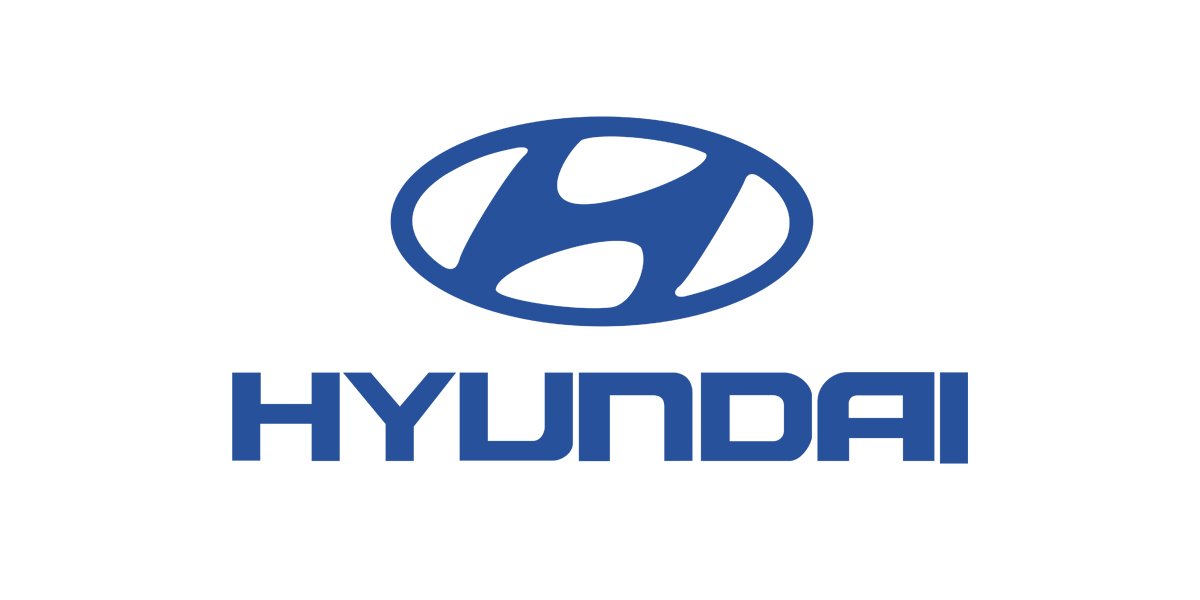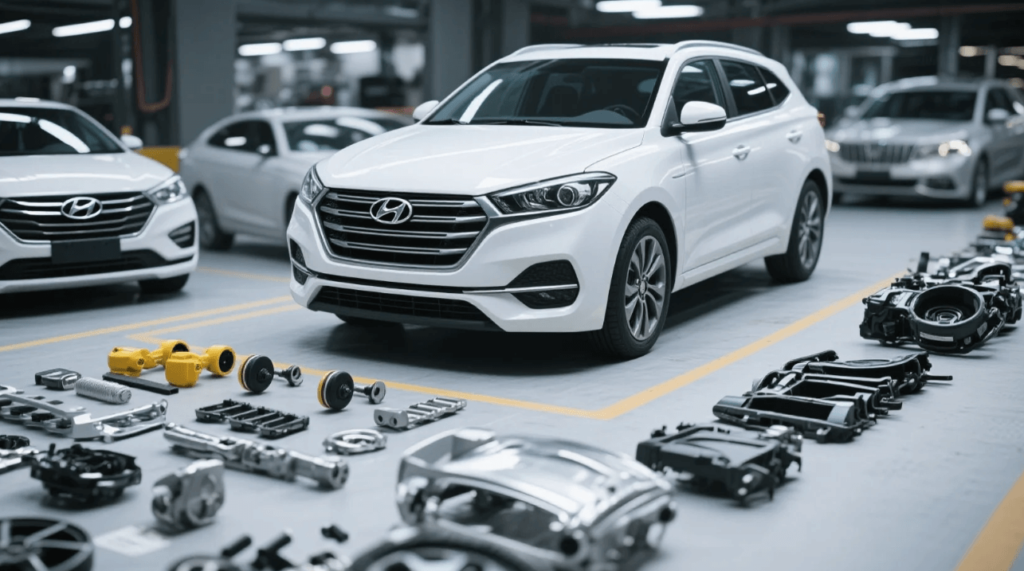
For any Hyundai owner, the journey doesn’t end after driving off the lot. Ownership involves a commitment to maintenance and, inevitably, the replacement of parts. Whether you are a hands-on DIY enthusiast or simply an owner looking to make an informed decision, understanding the world of Hyundai auto spare parts is crucial for the longevity and performance of your vehicle. In a market flooded with options, from Original Equipment Manufacturer (OEM) parts to a vast array of aftermarket choices, making the right decision can feel overwhelming. This comprehensive guide is designed to empower you with the knowledge to navigate this landscape with confidence.
The modern automotive parts market is complex. Concerns about quality, authenticity, and price are valid. A vehicle is a significant investment, and using the right components is fundamental to protecting that investment. This article will provide you with a deep, practical understanding of your options, helping you identify common issues with your Hyundai, choose the best parts for a repair, and understand where to find reliable components that offer both value and peace of mind. We will explore the critical differences between part types, identify signs of quality, and introduce you to a trusted source for your automotive needs.
Understanding Your Hyundai: Common Issues and the Parts That Fix Them
Every vehicle has its unique quirks and common maintenance needs, and Hyundai models are no exception. Being aware of the typical issues that may arise can help you diagnose problems early, preventing more significant damage down the road. Addressing these problems often involves replacing specific Hyundai auto spare parts.

Engine and Transmission: The Heart of Your Hyundai
The engine and transmission are the most complex systems in your vehicle. Over the years, certain models have shown tendencies for specific issues that owners should be aware of.
Common Engine-Related Problems:
- Engine Sensors (Crankshaft Position, Oxygen): A faulty sensor can lead to a range of problems, from poor fuel economy to stalling. The Check Engine Light is often the first indicator. Replacing these sensors is a common repair that can restore performance.
- Ignition Coils and Spark Plugs: These components are essential for igniting the fuel in your engine. If your Hyundai is misfiring or idling roughly, worn-out spark plugs or a failing ignition coil are likely culprits.
- Timing Belts/Chains: The timing belt or chain ensures your engine’s components move in perfect harmony. These parts have a specific service life and must be replaced at manufacturer-recommended intervals to prevent catastrophic engine failure.
Transmission Health:
- Solenoids and Speed Sensors: Modern automatic transmissions rely on electronic sensors and solenoids to shift smoothly. If you experience jerky or delayed shifting, a faulty sensor is often the cause. These are relatively straightforward repairs that can save you from a costly transmission rebuild.
For these critical repairs, sourcing high-quality components is non-negotiable. For instance, when replacing a vital engine sensor, you need a part that meets or exceeds original specifications. GB Auto Parts offers a curated selection of engine and transmission components, such as their precision-engineered speed sensors for various Hyundai models, ensuring your repair is both effective and durable. Visit gbautopart to explore their catalog.
Suspension, Steering, and Brakes: Ensuring a Safe and Smooth Ride
These systems are critical not only for comfort but, more importantly, for your safety. They are also subject to wear and tear from daily driving.
Suspension and Steering Components to Monitor:
- Struts and Shock Absorbers: Responsible for absorbing bumps and keeping your tires planted on the road, worn struts will lead to a bouncy, uncomfortable ride and reduced handling.
- Control Arms and Ball Joints: These components connect your wheels to the vehicle’s frame. A clunking noise when turning or going over bumps is a key indicator that they may need replacement.
Brake System Maintenance:
- Brake Pads and Rotors: These are the most frequently replaced brake components. A grinding noise or a pulsating brake pedal are clear signs that it’s time for new pads and rotors. Neglecting this can lead to more extensive and expensive damage.
- Calipers: A brake caliper can seize, causing the brake to drag or not engage at all. This is a serious safety issue that should be addressed immediately.
When it comes to safety systems, there is no room for compromise. Choosing a reliable supplier for these parts is paramount. For a complete brake overhaul on a Hyundai Sonata, for example, the performance brake kits available at gbautopart provide a cost-effective and high-quality alternative to dealer parts.
The Great Debate: OEM vs. High-Quality Aftermarket Parts
One of the most significant decisions a Hyundai owner will make is whether to use OEM parts or turn to the aftermarket. Both have their place, and the best choice often depends on your priorities.
What Are OEM Parts?
OEM (Original Equipment Manufacturer) parts are components made by the same company that manufactured them for Hyundai. They are, in theory, identical to the parts your vehicle was built with.
Pros:
- Guaranteed Fit and Quality: There is no question about compatibility or quality.
- Warranty: They are often backed by the manufacturer’s warranty.
Cons:
- Cost: They are almost always the most expensive option.
- Limited Availability: They are typically only available through authorized dealerships.
The Case for High-Quality Aftermarket Hyundai Auto Spare Parts
Aftermarket parts are produced by companies other than the original manufacturer. The quality and price can vary significantly, which is where careful selection becomes key.
Pros:
- Cost-Effective: Aftermarket parts are generally more affordable than their OEM counterparts, offering significant savings.
- Variety and Innovation: The aftermarket is a competitive space, which drives innovation. You can often find parts that are redesigned to improve on the original’s weaknesses.
- Wide Availability: They are available from numerous suppliers, both online and in physical stores.
Cons:
- Variable Quality: The market is vast, and not all aftermarket brands are created equal. This is the primary concern for most buyers.
- Overwhelming Choice: The sheer number of options can be confusing.
The key to success with aftermarket parts is to choose a reputable supplier. A trustworthy retailer will have a stringent vetting process for the brands they carry. GB Auto Parts has built its reputation on this principle. They understand that for Hyundai auto spare parts, quality is paramount. They specialize in offering premium aftermarket components that provide the perfect balance of performance and value, ensuring you don’t have to choose between your budget and your vehicle’s health.
How to Identify Quality Aftermarket Parts: A Buyer’s Guide
Navigating the aftermarket for Hyundai auto spare parts requires a discerning eye. Here are several factors to consider to ensure you are purchasing a quality component:
1. Reputation of the Manufacturer and Supplier
Choose brands that are well-regarded within the automotive community. Similarly, purchase from suppliers who stand behind their products. A reliable supplier will have a clear warranty and return policy, as well as positive customer reviews.
2. Materials and Manufacturing Standards
Quality parts are made from high-grade materials and are manufactured in facilities that adhere to international standards like ISO 9001. Look for product descriptions that provide details about the materials used and the manufacturing process.
3. Certifications
For certain parts, look for certifications that indicate they have been tested to meet or exceed OEM standards. This provides an extra layer of assurance.
4. Warranty and Customer Support
A lengthy warranty is a good indicator that the manufacturer is confident in their product. Furthermore, accessible and helpful customer support is invaluable, especially when you need assistance with fitment or installation.
At GB Auto Parts, every product in their catalog, from a simple air filter to a complete suspension kit, is backed by a comprehensive warranty. Their commitment is to provide Hyundai auto spare parts that not only fit perfectly but also endure the test of time. Their easy-to-use website, complete with a vehicle selector tool, ensures you find the right part for your specific Hyundai model, eliminating the guesswork and frustration often associated with buying parts online.
The Smart Choice for Your Hyundai
Your Hyundai is a finely engineered machine that deserves the best care. While dealer-supplied OEM parts are a reliable choice, they are not the only one. For the discerning owner who values both quality and intelligent spending, the world of high-quality aftermarket Hyundai auto spare parts offers a compelling alternative.
By understanding the common issues your vehicle may face and knowing how to select a reputable supplier, you can keep your Hyundai running in peak condition without overpaying for parts. The key is to find a partner you can trust. A supplier like gbautopart simplifies this process by doing the heavy lifting for you—vetting manufacturers and offering a catalog of parts that you can be confident in. This empowers you to make a choice that is not only good for your wallet but also for the long-term health of your vehicle.
Frequently Asked Questions (FAQ)
Q1: Will using aftermarket parts void my Hyundai’s warranty? A: In the United States, the Magnuson-Moss Warranty Act protects consumers. A vehicle manufacturer cannot void your warranty simply because you used an aftermarket part. They would have to prove that the aftermarket part caused the specific failure for which you are seeking warranty coverage. For peace of mind, always use high-quality aftermarket parts from a reputable supplier.
Q2: How can I be sure an aftermarket part will fit my Hyundai? A: Reputable online suppliers like gbautopart have a vehicle lookup tool on their website. You can enter your Hyundai’s year, model, and engine size to see only the parts that are guaranteed to fit your specific vehicle. Always double-check this information before purchasing.
Q3: Are more expensive aftermarket parts always better? A: While price can be an indicator of quality, it isn’t the only factor. The reputation of the brand, the materials used, and the warranty offered are often more important. Sometimes, a higher price reflects brand recognition rather than a significant difference in quality.
Q4: Can I install these parts myself? A: Many Hyundai auto spare parts, such as air filters, spark plugs, and brake pads, can be replaced by a DIY enthusiast with the right tools and knowledge. However, for more complex jobs involving the engine, transmission, or safety systems, it is always recommended that the work is performed by a qualified professional mechanic.
Q5: What is the main advantage of buying Hyundai auto spare parts online? A: The primary advantages are cost savings and a wider selection. Online retailers generally have lower overhead costs than physical stores and can offer a broader range of parts from various manufacturers. This allows you to compare prices and find the best value for your needs.


